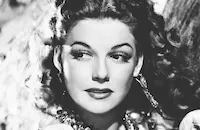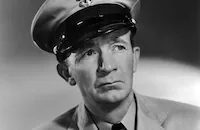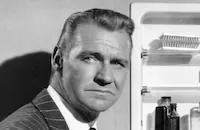Synopsis
In 1927, in Arkansas, recovered alcoholic Matt Ballot is curious to see his wife Bess and mute daughter Annie, whom he abandoned nine years ago. When he returns home, Bess, a kindly but unsentimental woman who put aside loneliness to keep the farm and family together, admits that she is not happy to see him, having decided to forget him. Respectful of her feelings, Matt starts to leave, but, overcoming her initial resentment, Bess invites him to dinner. Matt soon learns that the shy Annie spends most of her time with animals, especially her large dog, Runt. He is also surprised to learn that a son, Abraham, was born after he left. Old for his age, Abe is curious and well-spoken, and is pleased to discover that he has a father like other kids. After dinner, Matt thanks Bess for his best meal in years and Bess permits him to spend the night in the boy's room. The next morning, Abe, a chronic bedwetter, tells Bess that he did not have an accident during the night. Before leaving, Matt decides to fix two flat tires on Bess's car. When he advises Bess that the fence needs mending before "next spring," she offers him a job as "hired hand," on the condition that their relationship remains platonic, acknowledging that having a man around is "important to kids." Neighbors Mr. Canary and Leroy Hytower, who is Matt's former rival for Bess's affections, arrive to tell Bess that Annie has been visiting Canary's thoroughbred colt during the night and alarming the mare. Leroy, who has been trying to win over Bess in her husband's absence, mentions Matt's predilection for drinking. He tries making Matt jealous by pretending to have a close relationship with Bess and Abe, but Matt calmly ignores his insinuations. Later, while walking with the children, Matt encounters a dangerous pack of razorback pigs. After ordering the children to climb a tree, he chases the beasts away and wins Annie and Abe's admiration. On the day of the local farmers' "milk run," in which Bess delivers the milk to a train stop, Bess introduces Matt to her sharecroppers, widower Jeff Storys and his son Bob, who has been setting bear traps on Echo Mountain. Matt warns Bob about the dangerous, large holes that the mining company left behind when they abandoned the site. At the train stop, Matt tries to renew his acquaintance with neighbors Mr. Totter and Mr. Smith, but they shun him for deserting Bess. Canary, who believes Matt is better than his past indicates, suggests that if he is still around "come next spring," he will regain their good opinion. As the days go by, Matt finds contentment from the hard work of the farm. Abe asks why Matt and Bess sleep in different rooms unlike other parents, giving Matt the opportunity to suggest to Bess that she "think about it." In town, Canary invites Matt to the pool hall, where Leroy and another man try to pick a fight with him. Matt calmly confronts them without resorting to violence, which Totter wrongly interprets as cowardice. Outside, Matt disappoints an old friend, bootlegger Shorty Wilkins, by saying he no longer drinks. Then Matt breaks up a fight between his children and a gang of boys who are tormenting Annie about Matt's former drinking and for being a "dummy." On the trip home, Matt gives Annie a harmonica with which she can answer Bess when she calls. When Abe asks if Annie will ever talk, Bess is unwilling to discuss the matter. However, Matt, believing they should know the truth, explains that Annie talked when she was a baby. Back then, he tells them, he was irresponsible and drank a lot. One night, he drunkenly ran the car off the road and, although he and Bess were unharmed in the accident, Annie never spoke again. Expecting that Annie will hate him upon learning the truth, Matt is pleased when she instead hugs him, and Bess is touched by his confession. During the night, neither Matt nor Bess can sleep. Meeting in the parlor, they kiss, but she stops him, saying she is afraid he will get "restless" again. Respecting her feelings, Matt agrees to wait. One Sunday, church service is interrupted by a cyclone. In their panic to get home to their storm cellars, people overturn a wagon and a child is almost run over. Taking command, Matt directs the traffic, allowing everyone to exit safely. Later, inside the Ballots' cellar with the Storys and most of the livestock, Annie realizes that some newborn kittens are missing and sneaks out to get them. Battling high winds, Matt rescues her and the kittens. After the cyclone dissipates, the family finds their barn destroyed. The next day, neighbors help rebuild the barn, and Canary and Totter make it clear they are doing it for Matt, as well as for Bess and the children. By Halloween, Matt and Bess are warming up to each other. While they prepare for a big dance, Runt comes home, after having run away to deliver a litter of puppies. Annie overhears her parents and the Storys speculate that the litter is hidden in the dangerous mining area. At the dance, Leroy and other men tempt Matt with liquor and bet that he cannot stop at one drink. Meanwhile, Bess agrees with her friend Myrtle that Matt has changed for the better, but when he dances with her, she smells alcohol on his breath. Although he insists he had only one drink, she fears that history is repeating itself and leaves for home. Matt prepares to follow, but stops to confront Leroy, who is harassing Bob's date, Lovey Crockett. As news spreads throughout the room that Matt and Leroy have agreed to fight, a crowd of men forms outside. While trying to leave, the upset Bess drives her truck into the river. Matt and Jeff leave the fight to rescue her, after which Jeff tries to defend Matt's actions to Bess. However, Leroy interrupts them and resumes the fistfight and afterward Matt spends the night at Jeff's house, expecting Bess will never forgive him. The next morning, Bess reports that Annie and Runt are missing. Neighbors assist in the search of Echo Mountain, where they correctly guess Annie has followed Runt. During the search, Bess breaks down crying, blaming herself for withholding love from Matt and the children. To comfort her, Matt promises to take Annie to a specialist, using money he has already saved and more that he can earn by taking a good-paying job "on the coast." At the thought of Matt leaving, Bess begs him to stay, saying they need him. Meanwhile, after sleeping in an old shed with the puppies, Annie awakens and falls over the edge of a mine pit. As she clings to a tree root to prevent her from falling, Annie loses her grip, slips and screams, thus bringing searchers to her. Tied to a rope held by Leroy and the other men, Matt is lowered down to Annie and carries her up. After they are pulled to safety, everyone realizes that Annie screamed her first sound in almost ten years. Annie, surprised to discover that she is able to make a sound, tentatively screams again and then continues to scream with joy.


























